Your mortgage term is coming to an end, and the renewal notice from your lender is on its way. This can be a stressful time, filled with confusing mortgage terms and pressure to make a quick decision. Many homeowners simply sign the first offer they receive without properly exploring their renewal options.
However, you may have more control than you think. Timing is a key part of the process. You can often start your mortgage renewal process up to 120 days (or four months) before your current term officially ends. This gives you a valuable window to review your finances and find the best possible terms for your next chapter.
What a Mortgage Renewal Means for You
At the end of your mortgage term—that is, the 1, 3, or 5-year period you agreed to—you must pay off the remaining balance or renew the contract. Think of this as a checkpoint where you can reassess your financial situation. You can secure a new interest rate and terms that better fit your current needs.
Your Renewal Statement Explained
Your lender will send you a renewal statement at least 21 days before your term ends. This document shows you:
- The remaining principal on your mortgage
- The new interest rate they offer
- Your payment frequency & term length
- Any applicable fees or charges
The Best Time to Start Your Mortgage Renewal
You can often start the renewal process up to 120 days before your term officially ends. Start your research a few months before you receive that renewal letter from your lender. This gives you plenty of time to explore your options without pressure.
Why Start the Process So Early?
An early start allows you to lock in a favourable interest rate, especially if rates are on the rise. It also gives you time to shop around for a better deal. A conversation with one of our experienced mortgage brokers in Calgary can help you compare offers from various lenders.
Renew Early vs. Wait for the Maturity Date
You have a choice to make—accept an early renewal offer or wait until your term is up. Each path has its own benefits and considerations. It’s important to understand them before you decide.
Reasons to Consider an Early Renewal
Lenders often encourage early renewals to keep your business. An early renewal can offer security. If you secure a good rate, you protect yourself from potential rate increases before your term expires.
The Cost of an Early Renewal
Renewing too early with a new lender—before the penalty-free window opens—can trigger prepayment penalties. Your current mortgage contract outlines these charges. It’s important to review it first to avoid unexpected costs.
When It Makes Sense to Wait
If you expect interest rates to drop, you might want to wait. A better credit score or higher income could also help you qualify for a lower rate. Waiting until closer to your maturity date could be a smart move if your financial situation is about to improve.

What Happens If You Do Not Renew Your Mortgage on Time
If you let your renewal date pass without taking any action, your lender will not forget about the loan. They will likely move your mortgage into a new term automatically. This can have significant financial consequences.
Automatic Renewal into an Open Mortgage
Some lenders place your mortgage into an open term. This gives you the flexibility to pay it off anytime without a penalty. The downside is that open mortgages come with much higher interest rates.
Automatic Renewal into a Closed Term
Your lender might roll your mortgage into a short, 6-month closed term. The interest rate on such short terms is often higher than market rates. You could also face a penalty if you pay it off before this new term ends.
A Demand for Full Payment
In some cases, if you do not renew, your lender may consider the loan to be in default. They could then ask you to pay the entire remaining balance of your mortgage immediately. This is a serious situation that is best avoided with proactive planning.
How to Handle Special Renewal Situations
Your renewal is a chance to adjust your mortgage to fit your life changes. Whether you plan to sell your home or change lenders, a proactive approach is best. It’s the perfect chance to align your mortgage with your future goals.
You Plan to Sell Your Property Soon
If you intend to sell your home shortly after your term ends, a 5-year renewal is not a good fit. Talk to your mortgage professional about options like an open mortgage or a short-term renewal. This can help you avoid large prepayment penalties when you sell.
You Want to Switch to a New Lender
You do not have to stay with your current lender, and shopping around can save you money. Mortgage brokers are an excellent resource for comparing rates from different lenders. Keep in mind that switching may involve costs, such as:
- Setup or transfer fees
- An appraisal fee
- Legal & administration fees
You Need to Refinance or Consolidate Debt
Renewal is also a perfect time to refinance. You could borrow more money for renovations or consolidate higher-interest debts. Rolling other debts into your mortgage could help you get a lower overall interest rate.
Take control of your mortgage renewal to find the best terms for your financial future. Follow these simple steps to prepare for a smooth and successful process.
- Review Your Needs: Think about your goals. Do you want to pay your mortgage off faster, lower your payments, or access equity for other investments?
- Shop Around for Rates: Do not simply accept the first offer from your current lender. Compare rates and terms from other financial institutions to see what else is available.
- Talk to a Mortgage Professional: The landscape of mortgages can be complex and difficult to navigate alone.
The team at Mortgage Connection is here to help you understand all your options with transparency and clarity. By working with knowledgeable mortgage brokers in Calgary, you can feel confident in your renewal decision. Contact us today to get started.




